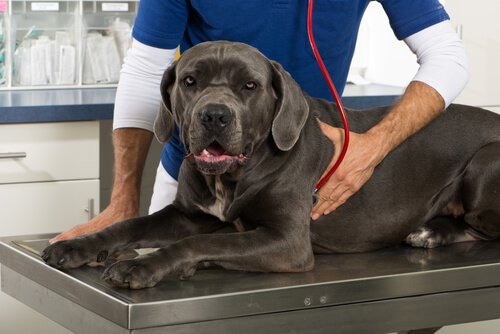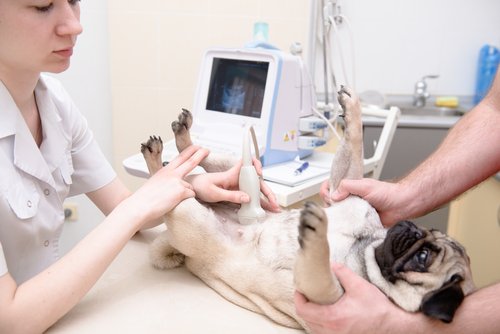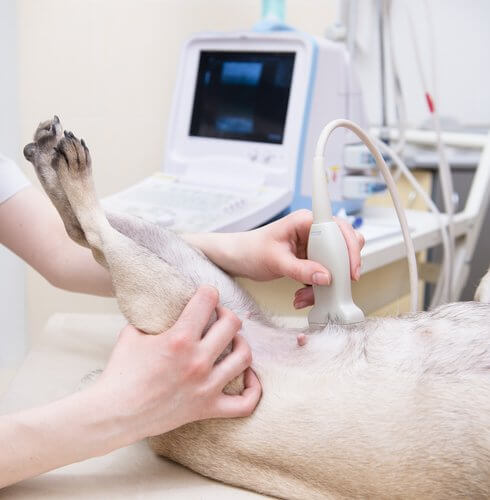Pet Health: Can a Female Dog Get an Ultrasound?

So, your dog is pregnant. You weren’t expecting it, but you’re excited, and you’ve started to take special care of her like she deserves. You’ll do whatever you have to to make sure it’s a healthy pregnancy. As the months go on, you’ll probably start to wonder how many babies there are and how they’re doing. But can a female dog get an ultrasound?
What is an ultrasound?

An ultrasound is a medical procedure that uses super high-frequency sound waves to create 2-D and 3-D images. Doctors and vets can use the technology to see inside our bodies. They can use it to look at anything from muscles to unborn fetuses.
The basic concept of an ultrasound is that it sends the sound waves into your body, creating an echo. They use that echo to create the outline, or image. It’s the same idea as a ship radar that scans the sea floor, but on a much smaller level.
It’s also a very simple procedure and isn’t at all dangerous for the mother or her babies. You should still be careful, though, there are studies that show too many ultrasounds can be harmful.
We mostly hear about it in the context of pregnancy, but doctors can also do ultrasounds to diagnose muscle tears and other health issues.
So, can a female dog get an ultrasound?
If you want your dog to become pregnant but aren’t sure whether she is or not, an ultrasound will give you the answer. Remember: this is something that needs to be done by a qualified professional.
You can have them do the first ultrasound 20 days after mating to find out if it worked. If you wait a few more days, though, you’ll get more accurate results.It’s also best for the dog to have a full bladder for the clearest images. So, figure out what time she usually has to urinate and make the appointment for just before that time.
You can do the second ultrasound about 50-60 days after mating. This appointment will show you how many puppies she’s going to have and where they are in the womb. You’ll also be able to make sure they’re healthy.
Still, it’s not 100% accurate. Some vets recommend an X-ray scan when the pregnancy is closer to term. X-rays can be harmful, so your vet will only recommend it if they think it’s in the best interest of the mother and her puppies.
Depending on what country you live in, getting an ultrasound for your dog is usually not too expensive, so you shouldn’t hesitate to make sure everything is going well if your budget allows it.
How to tell if your dog is pregnant
Like we said earlier, you can do the first ultrasound no sooner than 20 days after mating to see if your dog has gotten pregnant. However, if you don’t have the budget for it, there are some symptoms you can look out for to see if you’re going to be a dog grandparent!

- Appetite: when a dog is pregnant, her appetite goes down, and she starts to eat much less at a time. You should still go to the vet for a definite answer though.
- Swollen breasts: if you notice any physical changes in your dog, like swollen breasts, that’s nearly a guarantee that she’s pregnant.
- Change in attitude: if your dog is normally restless, playful, and lively but she seems tired and lifeless lately, it might be that she’s pregnant.
- Stomach size: this is a definite sign of pregnancy. If her stomach is growing and growing bit by bit, there’s something growing in there.
- If she makes a “nest:” when a dog gets pregnant, she’ll start looking for a perfect place for her puppies. So, she might start to scratch the floor, sheets, or even the bed to make them soft and comfortable for her puppies.
Whether you do it by observing her, or getting her an ultrasound, you’ll be able to find out if your dog is pregnant and make sure she’s healthy. Just remember: a pregnant dog needs special care, it’s not the kind of thing you can neglect.